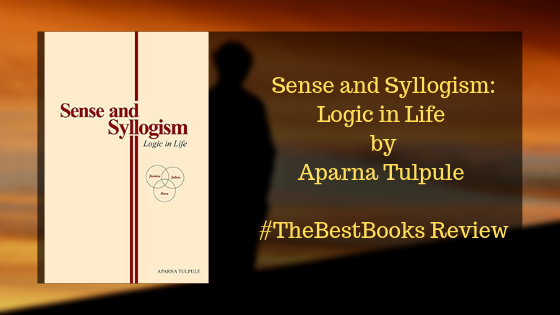
Academic books, as we generally think, are supposed to be boring and dry in terms of reading pleasure we can extract out of those. At times, nevertheless, we come across the books that are amazing. We can enjoy reading those bools in spite of their academic nature and content. I recently read one such book, Sense and Syllogism: Logic in Life. The book is about Logic, its various aspects and its academic nuances and advances. Author Aparna Tulpule has tried to simplify the theories, notions and ramifications of logic, thoughts, and various aspects related to logic that extend long in the academics. However, in spite of its academic nature, the book is interesting for anyone to read and enjoy.
Though we all, somehow, know the very basic definition of Logic and this is exactly the same as Aparna defines it in her book:
“Logic is the science of reasoning and defines rules for [a] valid argument.”
However, do we really know how deep it goes? Do we know the depths of logic and its aspects? Honestly, I did not bother to go into the depths of all these. I was sure that I knew enough and I was being logical. However, reading this book has just opened the new dimensions of understanding within the domain of logic.
By reading this book, a common reader, as well as an academic one, can understand some of the very important aspects: truth, truth relations, negation, hypothesis, syllogism, conclusion and reasoning and various other aspects that one can find in the book. The writing style of the author is simple and very reader-friendly. It makes the readers understand even the complex parts that otherwise one might find very difficult to interpret and understand. The author has included simple but effective examples to further extend the periphery of comprehension. She has taken the examples from real-life situations that make it easy for a reader to relate and understand the concepts being applied and explained by the author.
Yes, it might get difficult when a reader with little or no mathematical background meets the equations and other mathematics that the book includes. Though it will serve the best to the academic students, people without a deep understanding of mathematics can simply skip those parts and move ahead with the simplicity of text in this book and continue their journey to learn logic.
Well, in the end, I will say that I found the book very interesting and useful as well. I would suggest this book to everyone who wants to invest some quality time learning something we all want to but don’t have the time to do so. If you want to have a copy of the book, you can get it from Amazon India:
review by Vikash for The Best Books Blog